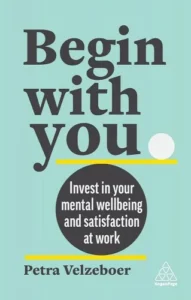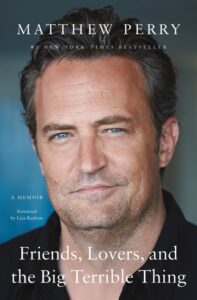
LI Voice Exclusive Interview
Mental Health Professional and Author – Petra Velzeboer
Petra Velzeboer is a renowned mental health expert, keynote speaker and CEO of PVL, a mental health consultancy. her new book Begin with You: Invest in Your Mental Wellbeing and Satisfaction at Work just released. We got an incredible opportunity to gain more information on improving your mental health specifically in the workplace. She is also a psychotherapist with an MSc in Psychodynamics of Human Development and is a qualified ORSC & CTI Certified Coach.
She grew up in the infamous Children of God cult and so her first-hand experiences of trauma, struggle and overcoming make her uniquely positioned to highlight the importance of mental wellbeing both at work and in our personal lives. Petra Velzeboer is based in London, UK.
Book Interview Questions: 
Your book Begin with You: Invest in Your Mental Wellbeing and Satisfaction at Work launches in May, congratulations! What should readers take away after reading this book?
Some real practical tips and advice on how to think about their wellbeing and approach to work in a unique way – to give the audience edge in a rapidly changing work environment. I want people to know how to manage burnout, think about depression and anxiety differently and know how to be an internal activist so people will know how to evolve the culture where they work.
What inspired you to write Begin with You: Invest in Your Mental Wellbeing and Satisfaction at Work?
I’ve been wanting to write a book for a while – one that highlighted what I’ve learned through my journey of being raised in a cult and subsequent poor mental health as well as my experience as a mental health expert working across companies globally. The world of work is changing rapidly and I felt I had a unique angle in comparing cults to corporates – how toxicity builds slowly and how it’s up to each of us to challenge the information overload we find ourselves in and begin to challenge groupthink and take responsibility for our own wellbeing and the systems we’re part of.
What are some trends that you see in work environments today that leaders and employees should monitor?
I’m seeing a lot more people focussing on wellbeing as a work priority, which is great – but there is still a tickbox or PR exercise going on in many workplaces – wanting to attract talent or be seen to focus on the topic is very different from the work it takes to be brave, open and create a culture of good health in a hybrid world. I’m seeing more open stories about poor mental health, but I’d love to see more openness in modelling healthy behaviours in a hybrid world rather than the cult of hustle culture which is leading to burnout and physical and mental health challenges that are rising globally.
What do you think is the feeling or look of satisfaction when someone achieves a healthy work/life balance?
It’s Sunday night excitement at the week ahead, it’s a feeling of fulfilment and focus throughout the work week, it’s feeling psychologically safe in your team so that you can be yourself and give your thoughts and opinions without fear, it’s knowing you can talk about personal struggles long before they turn into crisis without the assumption that you need time off or are suddenly bad at your job. The feeling is one of community and belonging at work – which so many people long for.
Of course, the actual division of work vs life is very different than it once was and I don’t think it’s just a formula that works for everyone (for example the research and discussions on the 4-day week), it’s more about giving people autonomy to invest in themselves so their work/life balance works specifically for them.
Advice for Leaders:
What is one way that leaders can encourage more satisfied employees and develop a better work/life balance for their team?
Start with leading by example. This means openly talking about how you invest in yourself, putting gym time / picking up kids/therapy, etc. publicly in your calendar – it’s asking people how they’re investing in themselves and creating space to discuss how you work, not just what you do. It’s being open to feedback and understanding that sustaining long-term performance is all about sustaining long-term health.
What is a resource or piece of advice that you would give to a new leader? How can they establish a healthy balance for their team or for themselves in the beginning?
The best resource is a leader’s ability to listen to their people and to be comfortable not having it all figured out. So many leaders want to only ask questions they know the answers to or are comfortable discussing. However, it’s more important for leaders to listen to their employees, admit that we’re figuring out the new world of work together and empower people to think for themselves.
There are lots of leadership books out there that support varied styles of leadership. For example, Dr. Brene Brown talks about the usefulness of vulnerability within teams and has resources to use from. Dr. Nagoski has work based on learning how to complete your stress cycle. These tools and others like them can enable you to keep the conversation at the forefront of your team and learn together.
Advice for Employees:
How does an employee know that burnout is just around the corner? Any early signs that they should watch for?
There are lots of early warning signs when it comes to burnout. Interestingly the first stages can be working harder, a compulsion to prove oneself and starting to neglect your own needs (such as sleep, exercise, and connecting with friends). While these may be okay in the short term i.e., to hit a deadline, when this becomes our norm, we are on a sure road to burnout. Understanding your to-do list will likely never end but just like an athlete, if you want to perform at your best long-term you have to think about the machine that is your body. If you don’t nurture your physical and mental health, eventually your body or mind can be negatively affected.
It takes an average of two years to recover from full-on burnout – so I sometimes just ask people what they have the most time for – prevention or recovery. The angle of my book is all about learning to think for yourself and listen to your own body rather than being swept up in the cult of busyness and information overload.
Has the rise in fully remote and hybrid work environments helped foster a more achievable work/life balance for employees? Or are there new challenges that you are seeing?
There are definite challenges and working from home does not automatically achieve a work-life balance. What we need now more than ever is intention around what we want our work life to look like and how we create opportunities for connection and belonging at work as well. This includes our ability to create buffers between work and home. Before remote work, the office routine made those decisions for us, now we need to learn to make those decisions for ourselves. This is what many people have no clue how to do and need to practise – just like I did when I left a cult and had to learn what healthy boundaries were for me or even ask myself what I wanted. I just didn’t have the tools before, and people are realising they haven’t got the tools either and need to learn them from the ground up.
Many of us are already getting better at it, perhaps going into the office several days a week and working from home others – but what many haven’t factored in is the stacking effect of toxic stress that has built up for several years which may only now be manifesting as burnout symptoms.
To get this right, we need psychological safety in our teams. Rather than suffer in silence and try to figure it out alone, we need to feel safe enough in our teams. From this, we can begin to foster a feeling of connection and belonging and support each other on this road to wellbeing and effective performance in a hybrid world.
What advice would you give to our younger readers that sometimes feel overwhelmed because they are tasked with picking up the slack or unequal distribution of workplace responsibilities due to external factors? For example, single vs married, family vs family-free.
One thing I do know is that every generation feels some kind of way about the other. It’s natural to feel like our challenge, whatever it might be, is greater than other people’s. But what we’re often doing is comparing our insides to other people’s outsides. Most people will not see the troubling thoughts, insecurities and challenges that are held within someone. We only compare the outside/ put-together version of someone else’s life and it is easy to make stories about what’s going on for people.
As Dr. Brene Brown says, it’s hard to hate people up close. So, the antidote to many of these challenges is to lean in and be brave enough to open up and ask questions. You’ll often find that there’s more that connects us as humans than separates us if we’d just be brave enough to find out.
Of course, statistically, we do know that mental health issues are on the rise in the younger generation. Coupled with talent retention issues, the workforce that stays are often feeling overworked and overwhelmed. We need space at work to discuss these challenges and figure out how to support each other to succeed – and ultimately, if a culture isn’t working for an individual, then perhaps asking difficult questions about a career pathway and how to invest in themselves is the crucial next step.
 Questions for the Author:
Questions for the Author:
Was there a moment that guided or prompted you to focus on the study of mental health? How did you start down your current career path?
I was always interested in people – growing up in communes in countries around the world, I always observed people. First as a way of survival and then out of curiosity to understand them better. After leaving the cult with no education, I had to figure out in my twenties what my career path would be. So, I started as a youth worker and then trained as a psychotherapist, worked in the Charity sector and eventually in corporate wellbeing and mental health. But what I was really interested in first was ‘fixing’ myself. I had experienced depression, addiction and suicidal ideation as I tried to deal with the trauma of my past. Slowly, I built my own life and mental health to a strong place, I realised good mental health is a skill that can be developed. – It worked for me, and I became more enthusiastic about learning more and sharing these skills with others.
I ended up starting my own business out of sheer frustration. I was working for wellbeing companies that talked a good game and taught other people how to do things, but unfortunately many were toxic on the inside not actually doing what they were saying themselves. I started my business to prove a point – surely it was possible to teach others while also creating a mentally healthy workplace ourselves!
Has your approach to mental wellbeing evolved or changed since writing Begin with You: Invest in Your Mental Wellbeing and Satisfaction at Work?
It has. I realised as I connected the dots of groupthink and wellbeing through my research in the book that the real message people need is permission to think for themselves. It’s not about tools and advice so much as giving people the confidence to listen to their own bodies and apply the right thing to themselves at different times. This can go as far as allowing them to challenge authority (therapists, wellbeing professionals, influencers, etc.) and just do one small thing that works for them rather than being overwhelmed with all the things they should do.
 What book(s) are you currently reading?
What book(s) are you currently reading?
I just finished Matthew Perry’s biography Friends, Lovers and the big terrible thing about the toll of addiction and how it doesn’t matter what you have, you still take your mind with you. As someone whose been sober for 15 years, I’m acutely aware of a different path my life could be on. I’m also reading a book about creativity as I’m developing my interest in art as a way of investing in my mental health.
I always have a few leadership or workplace books – I’ve got the book Reinventing Organisations on the go as well.
What would you say is your greatest accomplishment as an author/mental health expert so far?
Writing this book has been a pretty big one. When I was 13, I got my first library card and have been in a sheltered environment, this opened up such an exciting world for me. Being able to write a book myself felt like a dream that would never be realised and now that it has, I am more excited than I imagine your average author to be.
Having said that, my biggest accomplishment really has been to stay alive and raise two kids into young adulthood. I often tell stories on stage of my addiction and the danger I would put myself and my young toddlers in years ago, so to see them at 17 and 19 as amazing young adults who can think for themselves is by far the greatest accomplishment of my life.
Any final remarks or something we didn’t ask that you wish we would have?
I’d love people to know that it is possible to completely change your life into something you love no matter what is in your past or what challenges now surround you. I know that sounds trite and like a parent trumpeting ‘you can be anything you want to be’ but I don’t mean it that way. I mean that with the right tools, support and determination, your life can change from one of being a victim of circumstance, darkness and pain into one that is connected, healthy and fulfilling. Hopefully, my story in the book and the subsequent steps that I shared, can help you begin taking the steps that are in your control, to create meaning in an uncertain world and begin to live the life you genuinely want.
Want more strong female reads on mental health, business, and self-care?
Sign up for a free newsletter from Her Promotion and get advice every month! We offer resources, briefing, reads, motivations, self-help, and insider tips. It’s women supporting women!




 Questions for the Author:
Questions for the Author:













